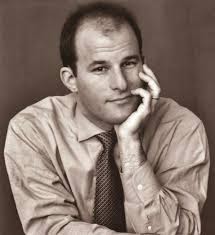
Not only is Somerville’s Denise Provost a great state legislator, but she is a fine poet and reviewer. Denise drops in now and then at the Bagel Bards literary group at the Au Bon Pain in Davis Square, and she is a great supporter of the arts. I had the pleasure to publish her poetry in the LYRICAL SOMERVILE and in the literary magazine IBBETSON STREET. Anyway – here is her review of a new book of poetry:

Adam Sol
Review by Denise Provost
I chose to read Complicity, the fourth book by Canadian poet Adam Sol, to see what writings might warrant the title of the collection. The title itself inspires a kind of furtive curiosity – in what might the poet consider whom to be complicit?
The answer would seem to be: pretty much everyone, in pretty much every human endeavor, from the civic to the intimate. The poem “Note Found in a Copy of a Midsummer Night’s Dream,” for instance, conflates two texts to induce queasiness about relationships between men and women:
It’s the moment when Helena pursues
Demetrius into the forest.
Use me but as your spaniel, spurn me, strike me
…………………..
Bryan, I love you and I don’t want you
To feel like you raped me….
Sol displays an utter unsentimentality about human relationships. “Evening Song” presents a single mother, recounting, “Laundry panic/Phone bill panic/Anger panic/ Television/A new scar on my arm” and musing:
Tuesday night.
After my shift,
I’ve got the whole
bus ride home to
decide if I should live.
Sol’s poems about people have a current of tenderness running through. Take “Nearly Blank Calendar”,
In which the bed bath of a disabled man is described with a clinical accuracy verging on reverence. Both the patient himself (Her husband, needing a change,/accepts the spoon/of pudding she nudges/past his teeth./Butterscotch./His surprised eyes….) and his attendant wife (Pillcase.Tissue/Radio.Gave up hope. Breakfast./Two hours sleep) are portrayed with the kind of compassion displayed in early Renaissance or Flemish paintings depicting the sufferings of religious figures.
Sol has far less mercy towards our more depersonalizing institutions. In writing about the public realm, however, he doesn’t come off as cynical, just painfully perceptive. In “Engagement,” he comments on warfare:
Their commanders have intentions and intelligence, but they are wrong.
We’ve heard the story before. It’s wrong.
The news will document it, but it will be wrong….
He takes on domestic surveillance in “Security Cameras” (“Sweethearts in school uniforms spoon froyo/into each other’s mouths on a bench across/from the Korean consulate./Death to the infidels.”), and skewers the whole domestic security apparatus in “Security Review”:
We were concerned about an element
and wanted to protect the delegates
from injury or, worse, embarrassment….
The outcome was that we preserved the peace.
We whored our city, then fingered the receipts.
But Sol’s poems are not screeds. They are too full of nuance – and anguish – to be so dismissed. “Ivory Fugue” weaves images of elephant-headed Hindu deity Ganesh with clinical descriptions of the slaughter and de-tusking of elephants (courtesy of National Geographic Magazine, according to the acknowledgements at the back of the book. The lovely, but excruciating “Poem for Noah Pozner” – the youngest of the school children shot to death in Newtown, Connecticut – ends with words from Noah’s mother, taken from an account of an interview with her:
I just
want people to
know the ugliness
of it so we
don’t talk about it
abstractly, like
these little
angels just
went to heaven. No
They were
butchered.
Fragments – and larger pieces – of found text are woven into many of the poems in Complicity. It’s clear that Sol is an omnivorous reader, but not just that. Above all, he possesses a voracious intelligence, which finds and creates connections from sphere to sphere. His relentless efforts to make sense of the world employ information from many unexpected sources.
Sol’s poems are not always an easy read, but are also not without humor. “Dwarf” juxtaposes the changing status of Pluto – planet, or ex-planet – with the worthiness of art as human endeavor. “We Oppose the Teaching of Higher Order Thinking Skills” riffs on a plank from the 2012 platform of the Texas Republican Party.
We may have much to make amends for, much to repudiate. Have we not all be complicit in some folly or another, some failing? Skewering our complicities, Sol yet affirms them as part of our human condition. He may not let us off easy – but he understands; he’s complicit, too.












Reader Comments